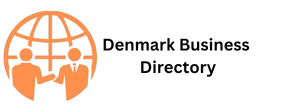Significance of Managing In the fast-paced environment of healthcare, maintaining accurate and accessible contact information is vital for efficient communication. Phone numbers serve as a primary means of connecting healthcare providers with patients, suppliers, and emergency services. Proper management of this data ensures timely appointment scheduling, prescription updates, and critical alerts, ultimately enhancing patient care and operational efficiency. As the israel phone number list of contacts grows, healthcare organizations must adopt systematic methods to store, update, and secure their phone number data, preventing miscommunication and ensuring compliance with privacy regulations. A well-organized database of phone numbers acts as a backbone for seamless communication workflows, reducing delays and errors in critical situations.
2. Best Practices for Collecting and Validating Phone Number Data Significance of Managing
Accurate phone number data collection begins at the point of patient registration or service intake. Implementing standardized forms that include country codes, area codes, and extension details helps ensure consistency. Validation tools, such as automatic format checks and real-time verification via third-party services, can significantly reduce erroneous entries. Regular audits of the phone number data help identify outdated or incorrect contacts, prompting updates or deletions. Incorporating multi-factor authentication or confirmation tailoring for different types of b2b buyers can also verify the authenticity of contact details, especially for sensitive healthcare communications. Employing these best practices safeguards against communication failures and enhances overall data reliability.
3. Leveraging Technology to Maintain Phone Number Data Integrity
Modern healthcare systems increasingly rely on advanced technology solutions to manage phone number data effectively. Customer Relationship Management (CRM) systems, Electronic Health Records (EHR), and dedicated contact management software offer centralized platforms for storing and updating contact information. These tools often include features like automated reminders to update contact details, secure access controls, and integration with communication channels such as SMS and automated calling systems. Additionally, data enrichment services can append missing or incomplete phone number details, improving the completeness of your records. Cloud-based solutions also facilitate real-time synchronization across multiple departments, ensuring everyone has access to the most current contact information. Embracing such technological tools enhances data accuracy, security, and usability.
4. Ensuring Privacy and Security of Phone Number Data
Healthcare providers handle sensitive contact information that must be protected under strict privacy regulations such as HIPAA in the United States or GDPR in Europe. Secure storage of phone number data involves encryption, access controls, and botswana business directory security audits to prevent unauthorized access or breaches. Staff training on data privacy policies is essential to ensure proper handling and sharing of contact details. When communicating via phone or SMS, using encrypted channels or secure messaging platforms adds an extra layer of protection. Additionally, obtaining explicit consent from patients before sending promotional or sensitive health information via their phone numbers upholds ethical standards and legal compliance. Prioritizing security measures around phone number data fosters trust and safeguards organizational reputation.
